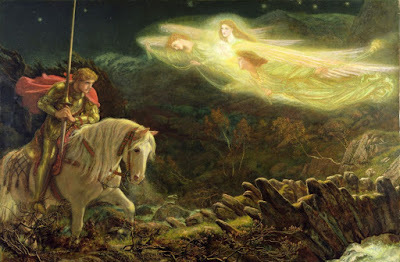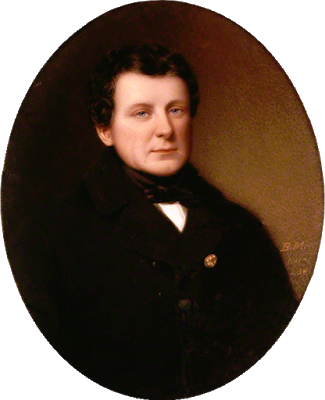Stephen Roney's Blog, page 256
February 14, 2020
Get Yer Popcorn for the Apocalypse
Is there any point to history?
Or do generations only rise and die?
Most cultures have said no. Social life at least was just one damned thing after another.
The Judeo-Christian and the Muslim traditions disagree. We have always held that history was under divine guidance, and, over time, revealed God’s will.
There are suggestions of this in the Beatitudes. Even though Christianity seems a more individualistic religion than Judaism.
First, there is the promise that the “meek,” the selfless, will inherit the Earth.
Then there is “blessed are the peacemakers.” The obvious reference is to just government.
We have accordingly been paying attention to the march or shuffle of history, in Europe and its colonies, for a couple of thousand years.
How has that worked out? Can we indeed detect in it some holy lesson, some teleological trend?
It seems obvious that we can—in the sense that there has been dramatic human material progress over that period. Not incidentally, most of that has come in Christian lands, suggesting religion might have something to do with it.
By itself, however, this does not demonstrate divine guidance. It is natural enough for mankind to be seeking material comfort, and so over time it is natural if they achieve it.
A better test is this: in the strife of governments, lands, and empires, does the good guy usually, if not always, win?
It looks as though they do. The bad sorts can gain temporary ascendency, but always lose in the long run.
Cynics here have a ready reply: it only seems to be so, because history is written by the winners.
Yet those of us old enough to remember the fall of the Soviet Bloc must suspect there is something to it. The Communist world was indeed, as Reagan called it, “the Evil Empire.” If we did not quite believe it then, we have heard ourselves much testimony since from those who lived beneath it. And those of us who saw it fall must have suspected a miracle, a divine intervention. Only a few years earlier, it was conventional wisdom among the learned classes in the West that soon Communism would achieve primacy, either through victory in one big hot war in Europe, dominos toppling in the Third World, or “convergence”—the West being forced to adopt the same policies to compete.
Yet suddenly, it was gone. As though we had awakened from a dream.
We saw ourselves the same in the fall of Nazism. For a few years, it looked invincible and inevitable. And then it came crashing down.
Opposed again to this idea of God in command, it is fashionable today to condemn the great European Empires as examples of evil triumphing. Evil then swept the Earth, and held sway for perhaps a hundred years. You might argue that they lost in the end; but they had a strikingly good run.
I think that is misguided. There is nothing evil about an empire. To be blunt, that notion is racist.
How is it better for me that the people running my government are of the same race as myself? That should mean nothing to me, unless I am a racist. Or expect special favours because of race.
It also does not matter, by itself, that I vote on who is in charge. That is only a means to an end.
An elected government can be evil. Hitler was elected, and was evil. Robespierre was elected, and was evil. Lynch mobs are evil.
An unelected government can be good. Pope John Paul II was not elected, and few could argue he was a bad pope.
What matters is that the government is run disinterestedly, honestly, and fairly for all, and is strong and resolute enough to defend everyone’s rights and property, against either close neighbours or outsiders.
An imperial government may well be better at that than a local government of the same genetic makeup. They even have special advantages: they command more force to defend against outsiders. They can concentrate more force to keep order. They are not beholden to anyone at the local level, as a local government, or an elected official, is likely to be. And they have nothing to prove socially: to them, all local classes, races, or tribal groups are likely to look the same.
The British treatment of Ireland was evil; but that was really a separate issue. The problem was precisely that Ireland was not thought of as part of the Empire, but part of the homeland. So assimilation was demanded.
Everywhere else, Britain gave the world Pax Britannica, a notable period of peace and prosperity, of optimism about the future, and of rapid human progress. It ended the slave trade; it ended the caste system in India; it ended suttee; it ended thuggery, banditry, and piracy wherever it went; it ended the eternal genocidal tribal wars in Canada, Africa, and the South Pacific. It introduced common law, parliamentary procedure, and sound principles of accountancy, significant civilizational advances, worldwide. Not to mention empirical science and the industrial revolution.
The Roman Empire, the next most obvious example of a successful empire, was in the same way a civilizing influence. It gave Europe the Roman Law, still the basis of most European legal systems. It hosted the spread of Judeo-Christian values and Greek moral and political philosophy. It ended Punic child sacrifice. It ended the constant tribal wars and human sacrifice of Gaul. Like most empires, it reduced racism. Anyone could become a Roman citizen.
After a thousand years, it fell; and its fall in the West produced a significant civilizational decline. This is some measure of its value.
America is not an empire, but is now globally dominant. And America is, perhaps not coincidentally, the most moral of nations. It is, literally, the most religious of advanced nations. America is a nation not based on race or ethnicity, but on ideals: the ideals of liberal democracy, of Jefferson and Locke. While it has sinned in its past, only in comparison to its own ideals, not in comparison to other nations at the time.
There are logical reasons why the most moral nations will most succeed—which may be to say, this is burned in to the world’s Logos. If you cannot trust your neighbours, and trust the government, a huge amount of effort and energy must be wasted. People with shared ideals and a selfless attitude are more inclined to work together towards a shared goal. This defines a successful society.
The secret to the great success of Roman was such trust. The classic Roman battle tactic was for each soldier to thrust sideways, instead of at the attacker in front. This allowed him to get past the enemy’s armour. But for this to work, each man needed absolute trust in the soldier next to him. It was a test of selflessness.
The second great strength of Rome was that they never accepted defeat. When Carthage sank their entire fleet, they built another. When Hannibal wiped out their army in the field, they built another.
This was possible only because the average Roman had unshakeable faith in the government. In another place, in the face of such defeat, social order would dissolve in recriminations and revolt. Compare Russia in 1917; or France in 1870 or 1940.
The British secret was the same. As someone said, “the British lose every battle but the last.” They did not break in defeat; their finest hours have been magnificently orderly retreats or last stands. You could not break the British line or the British square. They just kept fighting until, sooner or later, the other side gave up.
This is possible only with a high level of mutual trust; trust in your government, your commanders, and your fellows in the field.
Understanding this much, it must then be said that we are plainly now entering a period of abject cultural decline. Trust has been broken. Unity around ideals has been lost. Postmodernism, intersectionality, feminism, transgenderism, and multiculturalism are exactly the opposite of what makes a society, a culture, or a government moral and successful. They seem designed to deliberately foment conflict. They represent a systematic denial of all shared values and moral principles.
The only thing keeping us from total collapse is the absence of any clear alternative. Of what Ibn Khaldun saw as the engine of history: of some new and vital ideology sweeping in from the desert or the fringes to re-establish moral order.
The decadence explains why Marxism is still or again so popular, despite its obvious and consistent failures. Marxism at least offers a coherent vision of history, a sense of social direction, and a moral code.
It explains again why Islamism suddenly has such strong appeal; for all the same reasons.
But just like Communism, we see that Islamism does not produce good results. We saw it tried in Iran and Libya. Like Marxism, it seems just unifying enough to get a movement into local power, but not compelling enough to inspire moral behaviour in them for more than perhaps a few years.
Trumpian populism seems to be producing better results, but is also no solution. It is too obviously all showmanship, smoke and mirrors. It will engage perhaps for a season, but not for longer.
Environmentalism might look like another current candidate for giving social life meaning. But it is anti-social and anti-human. It is no more than an impulse toward mass suicide.
America has gotten to the present point on the unifying principles of liberalism. Liberalism may still have fuel. Libertarianism is gaining support among the young.
But liberalism as a creed is limited. It is a via negativa, outlining what society must not do. This has led before to a general popular sense of inadequacy: if we have freedom, freedom to do what? What, other than not bothering each other, are we all here for?
It feels, in the end, bloodless, mechanical.
It needs, therefore, a second motivating ingredient.
Originally, this was Christianity. Locke built liberal philosophy on Biblical foundations. John Adams wisely advised, “Our Constitution was made only for a moral and religious people. It is wholly inadequate to the government of any other.” And he knew what he was talking about. A great deal in liberal democracy is based on an assumption of moral behavior among parties. Failure to recognize this truth led the US sadly astray in its attempts at nation-building in Vietnam, Afghanistan, or Iraq.
Our best hope therefore seems to be something like a Third Great Awakening in the United States.
Leonard Cohen seems to have seen the same, in his 1992 song “Democracy.”
It's coming to America first
The cradle of the best and of the worst
It's here they got the range
And the machinery for change
And it's here they got the spiritual thirst
… It's coming from the sorrow in the street
The holy places where the races meet
… From the staggering account
Of the Sermon on the Mount
… From the wells of disappointment
Where the women kneel to pray
For the grace of God in the desert here
And the desert far away:
Democracy is coming
To the USA.
We can only pray.
'Od's Blog: Catholic and Clear Grit comments on the passing parade.
Published on February 14, 2020 07:15
February 13, 2020
No Peace Pipe
 An earlier protest against the evils of democratic rule.
An earlier protest against the evils of democratic rule.The current widespread protests in Canada over the Coastal GasLink pipeline crossing Wet'suwet'en lands encapsulates something odd about the popular attitude towards indigenous people.
The Wet'suwet'en elected band councils, although themselves far from models of democracy, have approved the pipeline. The popular protests oppose them, in favour of a group of hereditary chiefs, who do not.
Now, imagine the equivalent thing were happening in the Canadian mainstream: the parliament of Canada wanted to build the pipeline, but the Queen was objecting.
Would people really be flooding into the streets to support the Queen? To support hereditary privilege? To back the House of Lords?
Why the difference?
Why do we want and insist on democracy for ourselves, but oppose it for indigenous people?
Yet this is also, in the end, the same logic we employ in declaring special “aboriginal rights.” These too are hereditary rights. So it is emblematic of the entire enterprise, of our entire relationship with the fellow citizens we designate “Indians.”
Part of it may be, of course, that environmentalists want any possible excuse to oppose any pipeline.
But at least part of it, I suspect most of it, is a common notion that Indians must not be allowed to make decisions for themselves. They are innocents; like children, like wild animals. They are not fit for democracy.
This is the myth of the noble savage.
It is not necessarily that protesters think the hereditary chiefs are wiser. But they represent the old and traditional ways, and their decision now is to do nothing. This serves to protect the innocent and picturesque Indians from entering the sinful modern world.
'Od's Blog: Catholic and Clear Grit comments on the passing parade.
Published on February 13, 2020 06:12
February 12, 2020
Blessed Are the Peacemakers
 The Colt Peacemaker.
The Colt Peacemaker.Blessed are the peacemakers, for they will be called sons of God.
This is one of the most popular of the Beatitudes, but one over which there is much debate.
What exactly is a “peacemaker”?
I have some personal interest. An old census entry shows that some of my Irish ancestors were “peasemakers.”
My own guess is that this meant they made pea porridge.
The more distant listeners in Life of Brian hear it as “blessed are the cheesemakers.”
It is not, surely, a question of avoiding war—of pacifism. That, at best, is not “making” peace, but keeping it. And generally not really even that. The object lesson is Neville Chamberlain returning from Munich declaring “peace in our time.” Peace in our time is often bought at the price of worse war in good time.
Nor does it tend to fit the winners of the Nobel “Peace” Prize who earn it by negotiating a peace in an ongoing war. Because, inevitably, they are the same people who fought that war, and, inevitably, one or both of them is guilty of warmongering. There is no great boon to mankind in making peace if you made the war.
So what counts as actually “making” peace?
In Jesus’s time, the term “peacemaker” was most often applied to the better Roman emperors, on the grounds that they were responsible for the general peace: Pax Romana. Police are called “peace officers” for the same reason. You may say that they only preserve the peace, but they really do more than that: they prevent crime and violence by their presence.
It has to do, perhaps, with governing or acting justly, and justly resolving disputes, without fear or favour, in such a way that resentments and ill feelings are not aroused. The core idea is perhaps found in the Canadian constitutional phrase, “peace, order, and good government.”
It requires fairmindedness, and courage.
'Od's Blog: Catholic and Clear Grit comments on the passing parade.
Published on February 12, 2020 06:20
That Annoying Bible

My friend Xerxes has proposed his own corollary to Godwin’s Law (sic): “Anyone who cites a text from the Bible to clinch an argument automatically loses. A biblical reference may well illustrate a point. It may show that an idea has been around for a long time. But it doesn’t settle anything.”
Xerxes does not explain why he thinks this is a good idea.
The Bible is held, after all, to be the revealed word of God by all branches of Christianity as well as all Jews; and, with caveats, by Muslims too. Even for those who are not religious, it is a compendium of the premises on which the Western world was built; rather like a civilizational constitution.
To say that it does not settle anything is like saying reference to the Constitution does not settle anything in court. If it does not, what does?
Perhaps, instead, we need to reason from first principles. But what then are the first principles we can all agree on?
Xerxes rules out this possibility by asserting a second law:
“And I’ll add a further Law -- … whatever you believe today to be absolute, certain, and unchangeable, you will have to reconsider. Maybe sooner than you think.”
He will recognize no first principles.
What is left as a basis for action?
Emotional responses to the moment, presumably, and animal urges.
This sounds appealing, in a romantic way; but emotions are not a trustworthy guide to action. Even leave aside unruly emotions like anger, fear, envy, hate, on which we surely do not want everyone to act, if we value our safety. Even an emotion like love: I might fall in love with a married woman. Or with someone other than my wife. I might have no emotional attachment to my children. So I neglect them, or abuse them if they insist on hanging around.
Then we come to acting on animal urges. Not a good idea, if you have qualms about things like rape, pedophilia, cannibalism, and murder.
If this is all too abstract, remember playing informal games in childhood, when you did not settle on rules in advance.
How did that usually turn out?
Fortunately, kids do not have access to lethal weapons.
'Od's Blog: Catholic and Clear Grit comments on the passing parade.
Published on February 12, 2020 05:37
February 11, 2020
Blessed Are the Pure in Heart

Blessed are the pure in heart; for they shall see God.
Having just written of how tone-deaf the Oscars were, I feel I need to add an immediate caveat. Actors are not the problem here.
They are the ones most visible, in their suits and sequins and on the stage. But they are not the establishment.
Invariably, someone who has become an artist has emerged from a difficult background, an experience of oppression. A small number may end up rich and successful. But they are still members of an oppressed group.
Such an experience instills pureness of heart; because it crushes the ego. As I have noted before, an actor needs a very small ego in order to inhabit the mind of another for a role. So does a writer, writing the role. So does a director, trying to see things from the viewpoint of the audience.
And a pure heart, a heart not adulterated by ego, is a heart open to the spirit, to inspiration. Only they "see God."
Accordingly, talent comes from being abused. You need to have suffered to sing the blues.
Unfortunately, without ego, chameleon-like, as Keats had it, the artist is also open to being easily influenced by others. Being themselves guileless, they will not suspect guile in another. And so they can be weaponized by others or a more cynical frame of mind.
They are child-like in this way. They do not question or hold back; they see what they think is right, and they will invest in it totally. They are pure in heart.
Joaquin Phoenix’s speech at the Oscars was politically berserk, with its objection to putting milk on cereal, but Joaquin Phoenix’s heart was clearly in the right place.
'Od's Blog: Catholic and Clear Grit comments on the passing parade.
Published on February 11, 2020 06:55
Tuning the Fiddle While Hollywood Burns
New evidence comes daily now that we are undergoing a paradigm shift.
Sinn Fein has taken the first round of the Irish elections.
At first glance, this looks like a movement ideologically opposite to Boris Johnson’s win in Britain, or Trump’s in the US. But in Ireland, Sinn Fein was the available vehicle to register opposition to the establishment.
And not just establishment Dublin. Sinn Fein does share with Brexit and Trump a nationalistic emphasis. The name “Sinn Fein” translates “Ourselves Alone.” It looks like a vote against Brussels too. Sinn Fein means closer ties to Northern Ireland—outside the UE.
And yet the people in social power seem oblivious, still holding their bejeweled Versailles promenades. Birds of Prey, apparently, is bombing at the box, after being almost universally praised by the critics. Cats bombed. Doolittle, another big Hollywood FX extravaganza, just bombed. Audiences are no longer impressed. They are no longer drinking the soma. Few go out to theatres any more; a fact for the moment masked by large new audiences in China. There is more cash transacted in video gaming, or internet-streamed TV series, or YouTube.
Yet, as if oblivious, the Oscars ceremony was a Jacuzzi soak in political correctness. Joaqin Phoenix used his acceptance speech to protest against the human enslavement of cows.
And nobody was watching.
Berating your audience is not likely to bring them back. Scolding them for drinking milk, or for clinging to their guns and religion, or as “racists,” or “deplorables,” or “dog-faced pony soldiers.”
Or pretending to the moral high ground over the corpse of Jeffrey Epstein.
The very tone-deafness of the crusty uppers whispers of desperation. Expecting to be obeyed, they are getting agitated at the rabble’s growing refusal to curtsey nicely, and so making more elaborate, even outrageous demands.
Forcing the issue.
'Od's Blog: Catholic and Clear Grit comments on the passing parade.
Published on February 11, 2020 06:16
February 10, 2020
New Hampshire Prediction

I expect Sanders to win New Hampshire. Buttigieg should come a strong second based on his boost in Iowa, whether earned or not. Klobuchar had a strong debate performance, so I see her surging to third. Warren fourth, Biden fifth.
With this result, Warren drops out. If she can’t do better than fourth in New Hampshire, next door to her home state, where will she do better?
Klobuchar is unlikely to drop out so long as she is surging. Who knows how high she might yet go? And Biden is unlikely to drop out, because his campaign had always written off Iowa and New Hampshire, calling for their first win in South Carolina. Unless he is running out of money.
This leaves Sanders as the sole major candidate for the insurgent left of the party, and the votes of the more moderate politicos split among Buttigieg, Biden, Klobuchar and, going forward, Bloomberg. This helps Sanders. He is closest to Warren ideologically. There is bad blood between the two campaigns, but I think the Sanders people have more reason to be angry at Warren than vice versa.
Buttigieg is likely to underperform in South Carolina. He has a problem with black voters, and I think it is insurmountable. It has to do with his preppiness. It probably won’t sit well with southern whites either. That is liable to keep the votes, and the delegate counts, fairly evenly split among him, Biden, Klobuchar, and Bloomberg for the near future.
This, it seems to me, gives Sanders the best shot at the nomination.
'Od's Blog: Catholic and Clear Grit comments on the passing parade.
Published on February 10, 2020 06:46
February 9, 2020
Trump's Trump Card
Scott Adams makes a good point about Trump’s State of the Union speech: he is going after the black vote, and he stands a good chance of peeling them away from the Democrats.
The left-wing coalition is fantastically vulnerable, as noted here previously, because it includes groups with heterodox interests.
So the Democrats are at risk of dissolving into internal conflict. In the meantime, right-wing politicians have an opportunity to poach dissatisfied elements of the “New Deal” coalition.
The white working class was the easiest; the left has been openly contemptuous of them since the 1960s. Trump was able to pull them away last time, and Boris Johnson pulled them away from Labout in the last UK election.
But blacks look like the next-most-vulnerable “sectionality.” They are, after all, disproportionately more likely to be working class than whites, and so share the same concerns about immigrants taking their jobs. They are also disproportionately more religious than whites, and so more likely to be alienated by the left’s current assault on religion, its promotion of gay lifestyles, and its all-out support of abortion. And some blacks are beginning to notice that a disproportionate number of aborted babies are boack, and suspecting some racism is involved.
So Trump may well have success in pulling a good many blacks over to his side. Perhaps, as blacks in the past have tended to be a bloc vote, we could see an avalanche, and a Democratic disaster.
Next, Trump should make a play for women.
'Od's Blog: Catholic and Clear Grit comments on the passing parade.
Published on February 09, 2020 16:19
Blessed Are the Merciful
 Daniel O'Connell
Daniel O'ConnellBlessed are the merciful, for they will be shown mercy.
But what is mercy?
Doing good to others beyond what is required by your formal responsibilities to them; beyond what justice requires.
The church has traditionally listed seven corporal “acts of mercy.” These are not all Biblical, and cannot be derived directly from the Sermon on the Mount, but they have the warrant of established tradition.
1. To feed the hungry.
2. To give water to the thirsty.
3. To clothe the naked.
4. To shelter the homeless.
5. To visit the sick.
6. To visit the imprisoned, or ransom the captive.
7. To bury the dead.
Then there are the seven “spiritual works of mercy”:
1. To instruct the ignorant.
2. To counsel the doubtful.
3. To admonish sinners.
4. To bear patiently those who wrong us.
5. To forgive offenses.
6. To comfort the afflicted.
7. To pray for the living and the dead
Doing these thinks is not self-evident, not spontaneous to the conscience. For they involve actions above and beyond what justice requires. Those whose morality derives from the Confucian rather than the Christian tradition do not observe the corporal acts of mercy. Western foreigners are often shocked by this when they visit China.
One is not exempted from the corporal acts of mercy because one pays taxes to the government, and the government does it. It is great that the government does it, but you do not pay taxes voluntarily, so that does not redound on you.
Nor does one demonstrate this virtue by voting for candidates who promise to do more on these matters. While that might make your own taxes go up, for the most part, you are demanding that others do this, not doing it yourself. Politicians usually promise to make “the rich” pay, not the average voter.
And we are worse at the spiritual acts of mercy. In contemporary life, there is obvious resistance to admonishing sinners. There is even resistance to the idea of instructing the ignorant. Instead, everyone now is supposedly entitled to “their truth.”
And “forgiving offenses” and “bearing wrongs patiently” are widely misrepresented. This does not mean ignoring or overlooking them. This would conflict with the virtue of admonishing sinners.
The proper sense of these virtues was modelled by Gandhi or Martin Luther King, both of them following a trail blazed by Daniel O’Connell. You point out the wrong as loudly as possible, but refrain from revenge or exacting punishment.
'Od's Blog: Catholic and Clear Grit comments on the passing parade.
Published on February 09, 2020 04:27
February 8, 2020
Paul McCartney's Best
John Lennon is on record as complaining about most of Paul McCartney’s songs being “granny music.” He has a point—McCartney can be facile, and can mail it in. He is usually pretty shallow.
But, on the other hand, he can be deep, and when he is deep, he is to my mind as deep or deeper than Lennon. Lennon can be facile too, in a pseudo-intellectual smartass way. When McCartney hits an emotional chord, it seems purer.
Here is my list of his best songs in this sense: not catchy tunes, but true art.
Blackbird
The Long and Winding Road
Let It Be
For No One
And perhaps almost as good are Penny Lane and Eleanor Rigby.
The secret truth that nobody wants to mention is that these are all religious, Christian, even Catholic, songs.
'Od's Blog: Catholic and Clear Grit comments on the passing parade.
Published on February 08, 2020 07:49



